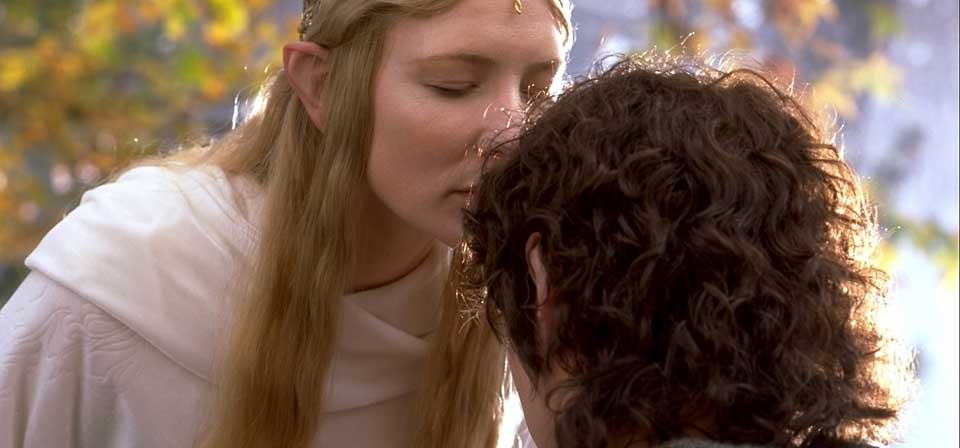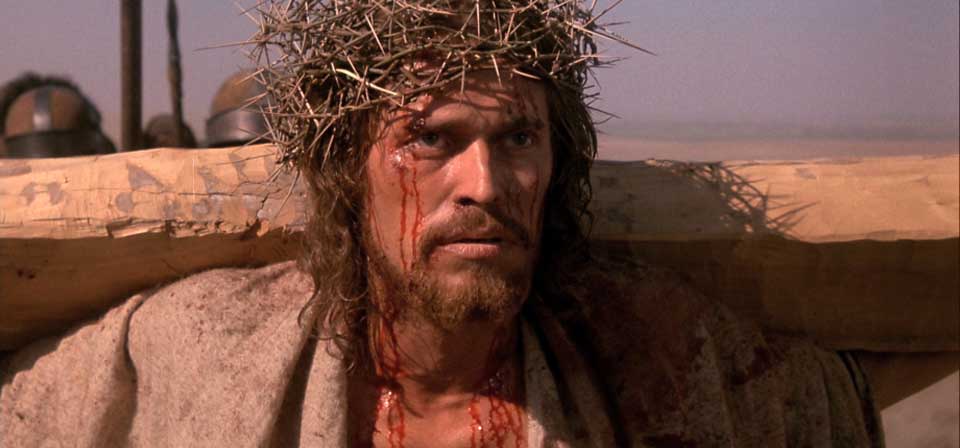Articles
Beyond Bias: The Passion of the Christ and Antisemitism
Abraham Foxman of the Anti-Defamation League declared recently that Mel Gibson’s The Passion of the Christ is not antisemitic, and that Gibson himself is not an anti-Semite, but a “true believer.”
Sculpting in Bullet Time: The Matrix Trilogy Revisited
The Matrix is simultaneously a philosophical model and a popular myth — a postmodern analogue to both Plato’s cave and Homer’s Odyssey, Descartes’ daemon and Pilgrim’s Progress, the brains-in-vats scenario and Star Wars.
Is The Matrix Gnostic or Christian? Part Two: The Sequels
Four years after its release, the world of The Matrix has been greatly elaborated by a pair of sequels, The Matrix Reloaded and The Matrix Revolutions. Given the intense philosophical and religious scrutiny to which the original film has been subjected, doubtless fans will be scrutinizing the new films to see what light they shed on the first film, and how they themselves should be viewed in light of the spiritual questions raised by the first film.
Is The Matrix Gnostic or Christian?
This level of interest is not primarily due to The Matrix’s visual innovations, such as its groundbreaking use of bullet-time photography. Nor is it, for example, Keanu Reeves’s acting that cries out for more critical discussion. Rather, it’s the philosophical, spiritual, and moral implications of this phenomenally popular action pic that are responsible for all the attention.
Signs of Change at Disney?
Now, encouraging signs of change in recent Disney films suggest that the Mouse may be starting to get the message. The new trend began with surprisingly strong pro-family themes in direct-to-video sequels such as Lady & the Tramp II: Scamp’s Adventure. This positive depiction of family continued in the theatrically released (though still low-budget) sequels Return to Never Land and Jungle Book 2.
Quo Vadis Disney? Notes on the End of the Disney Renaissance, circa 2001
The modern era of Disney animated greatness started with a splash in 1989 when the promisingly fresh The Little Mermaid hit theaters. Delighted audiences actually burst into applause at colorful show-stopping musical numbers like the sprightly "Under the Sea" and the enchanting "Kiss the Girl." Coming as it did after a string of uninspired releases (The Fox and the Hound, The Black Cauldron, Oliver & Company), The Little Mermaid set the stage for a creative comeback.
Home on the Range: The Last Roundup for Disney Animation?
Is Home on the Range really the final entry in the canon of Disney’s traditional hand-animated feature films — a body of work that goes back to Snow White and the Seven Dwarfs and includes such landmarks as Fantasia, Pinocchio, and Beauty and the Beast?
The Passion: Doug Barry of Radix Relives Jesus’ Final Hours
Veteran Catholic performer Barry, who calls his apostolate Radix, has been doing his live one-man passion play for a decade, accompanied for most of that time by his musical partner, Eric Genuis. One recorded version has played for a number of years on EWTN around Holy Week. This version, filmed live in 2003 at the Orpheum Theatre in Memphis, TN, benefits from enhanced production values including multiple cameras.
Watching Silent Movies with Children
The open-mindedness of the young obviously imposes a huge responsibility on parents to watch what their children are exposed to. But it also represents a tremendous opportunity to expose children to valuable and worthwhile experiences that for many of their peers will be lost, possibly forever, by the time they are teenagers.
Judas: Jesus in the Eyes of His Betrayer
The Achievement of Peter Jackson’s The Lord of the Rings
As Fritz Lang’s Metropolis was the first great science fiction film and Ford’s Stagecoach was perhaps the first great Western, The Lord of the Rings is the first great cinematic achievement of its kind - a genre that might be described as epic Western mythopoeia, but is often popularly (if imprecisely) called "fantasy" or "swords and sorcery."
"One Man’s Hero is Another Man’s Traitor"
Even movie-savvy Catholics often haven’t heard of One Man’s Hero, Lance Hool’s 1999 film about the San Patricios, a group of Irish Catholic immigrants in the 1840s who joined the U.S. Army but deserted after suffering religious and ethnic persecution, fled to Catholic Mexico, and wound up fighting on the Mexican side in the U.S.-Mexican War. The film, starring Tom Beringer, never got a proper U.S. theatrical release, and hasn’t been promoted on video and DVD, even in Catholic markets and media.
The Lord of the Rings: Filmmakers Contemplate Journey, Significance of Books and Films
“I think that Tolkien says that some generations will be challenged,” said

Faith and fantasy: Tolkien the Catholic, The Lord of the Rings, and Peter Jackson’s film trilogy
J. R. R. Tolkien once described his epic masterpiece The Lord of the Rings as "a fundamentally religious and Catholic work." Yet nowhere in its pages is there any mention of religion, let alone of the Catholic Church, Christ, or even God. Tolkien’s hobbits have no religious practices or cult; of prayer, sacrifice, or corporate worship there is no sign.
Peter Jackson’s The Lord of the Rings Film Trilogy: Will it be True to Tolkien?
Yet neither Baum nor even Mitchell ever quite generated the level of intensely passionate fan devotion inspired by J. R. R. Tolkien’s epic masterpiece The Lord of the Rings. This is a fact not lost on New Zealand director Peter Jackson, whose ambitious, unprecedented back-to-back three-film adaptation of The Lord of the Rings launches this December with The Fellowship of the Ring.
The Chronicles of Narnia (1988‑1990)
Beautiful, rugged UK landscapes, splendid old castles and other shooting locations, and some fairly impressive sets help create a sense of authenticity. At the same time, with the earlier episodes especially limited by modest production values, rudimentary special effects, and uneven acting, the Chronicles can’t be held even to the standard of such American TV productions as the Merlin and Arabian Nights miniseries.
The School of Rock vs. The Fighting Temptations
The hero’s nearly religious reverence for rock’s angry posturing and anti-authoritarianism — reverence culminating in a pre-concert prayer to the "God of rock" — isn’t quite condoned, but isn’t put in any larger context either. Rock culture’s darker side is whitewashed (it’s not about drugs, kids, and groupies are really just band cheerleaders!), and subjects other than music (and even music other than rock) get short shrift. Then there’s the swishing, lisping fifth-grade "band stylist" bringing "Queer Eye" camp to the grade-school setting.
Here I Stand: The Good and Bad in Eric Till’s Luther
In one sense, I’d like to see more films like this made. At the same time, Luther is also a seriously flawed film. Relentlessly hagiographical in its depiction of Luther and one-sidedly positive in its view of the Reformation, the film also distorts Catholic theology and significant matters of historical fact, consistently skewing its portrayal to put Luther in the best possible light while making his opponents seem as unreasonable as possible.
Remembering Bob Hope
Seven years ago, after nearly six decades of marriage to an active Roman Catholic, Bob Hope was received into the Catholic Church, and became a frequent communicant. His funeral Mass was celebrated on July 30 at St. Charles Borromeo Catholic Church in North Hollywood, and on Sunday, August 3, he was remembered at a memorial Mass celebrated by Cardinal Theodore McCarrick of Washington, D.C. at the National Shrine of the Immaculate Conception.

The Last Temptation of Christ: An essay in film criticism and faith
We must not be too quick to judge any particular portrait of Christ merely because it challenges our expectations or makes us uncomfortable, or because it doesn’t immediately evoke his divinity. After all, Jesus himself often confounded the expectations of his contemporaries, and didn’t necessarily impress most of them as being divine.
Recent
- Crisis of meaning, part 3: What lies beyond the Spider-Verse?
- Crisis of meaning, part 2: The lie at the end of the MCU multiverse
- Crisis of Meaning on Infinite Earths, part 1: The multiverse and superhero movies
- Two things I wish George Miller had done differently in Furiosa: A Mad Max Saga
- Furiosa tells the story of a world (almost) without hope
Home Video
Copyright © 2000– Steven D. Greydanus. All rights reserved.